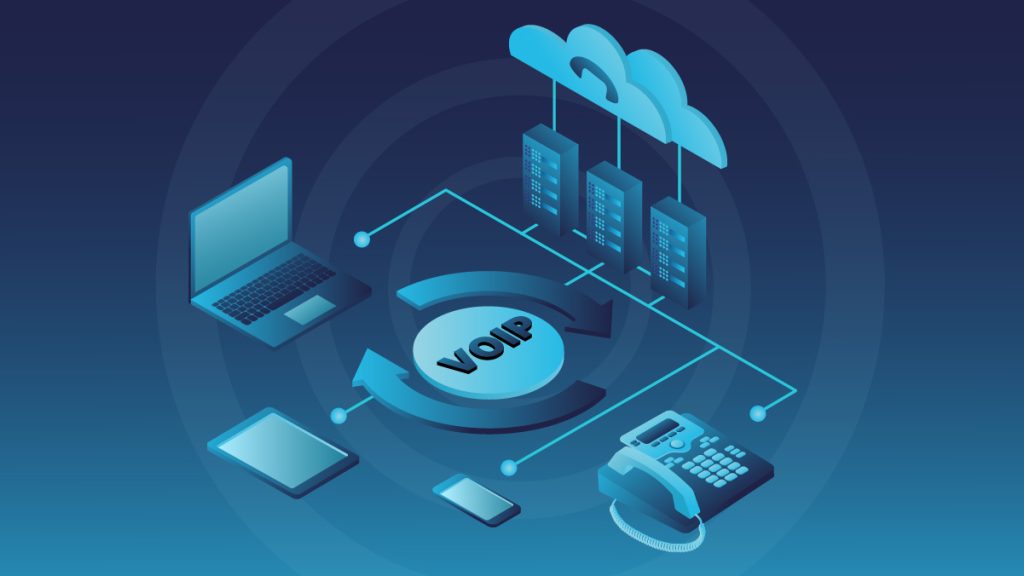
It’s now less than three years until the Public Switched Telephone Network (PSTN) is switched off in the UK, which means businesses must switch to digital now. With so much misinformation around how to navigate this switch off, Kristian Torode, Director and Co-Founder of business telecoms services provider, Crystaline, busts some of PSTN switch off myths around the switchover to digital phonelines.
Digital phonelines use a different type of technology to make calls — such as Voice over Internet Protocol, or VoIP. Instead of relying on physical, copper lines, VoIP transmits voice calls over the internet by converting the audio at one end of the connection into digital data packets, which are transmitted to the other end of the connection and are converted back into audio files. So, what are some common misconceptions around VoIP?
VoIP Offers Less Reliability and Poor Call Quality
While this may have been the case when internet-based calls were first developed, the technology has significantly evolved since then and VoIP delivers calls with crystal-clear audio and no lag or interference. It’s important to note that, as calls are held over the internet, your business broadband quality directly impacts calls, so a reliable internet connection is essential to making VoIP a success.
The breadth of the digital phoneline network also means that VoIP is more reliable than the PSTN. Calls are connected through several datacentres across multiple locations, meaning that an outage in one area won’t affect services. This certainly isn’t the case with the PSTN, as if the telephone exchange is down, it’s not possible to make calls.
VoIP Is More Expensive
Actually, cost savings are one of the main benefits of switching to digital. VoIP phone systems are priced on a per-user basis and are easily scalable if your business is going through a quieter or busier period. You can increase or decrease the number of lines that you pay for in just a few clicks. This is particularly useful for businesses with seasonal peaks, or when expanding to a new premise.
VoIP also allows you to save money on your comms setup by implementing a unified communications (UC) strategy. UC combines all comms channels into one application, which can be accessed from a range of devices, and uses VoIP to make calls. It eliminates the need for separate office landlines and mobiles — allowing businesses to be contactable from just one number.
Migration Is Complex and Longwinded
Migrating to VoIP is not actually complex once you understand the basics of how the technology works and opt for a hosted solution. Hosted voice systems involve working with a provider on an ongoing basis, which makes life considerably easier for business owners. Installation, setup, ongoing management, and troubleshooting are included as part of the package.
Working with a communication technology partner helps to take the headache out of the switch as you’re provided with ongoing technical support protected by a service level agreement. And if you happen to already have VoIP-ready devices, businesses just need to download the app of their selected VoIP system, ensure the phone is connected to the internet and it’s ready to go.
Making Calls Over the Internet Isn’t Secure
Digital phonelines are as secure as the IT infrastructure of a business, since they are made within an internal system. For example, the Vodafone One Net VoIP system includes an authentication feature to ensure only authorised users that are part of a business have access.
This prevents calls from being re-routed outside of an organisation and hackers from infiltrating the system by encrypting, authenticating and integrating mechanisms to protect against third-party access to business data.
Businesses Need a New Phone Number for VoIP
While a new number is an option when switching to VoIP, it’s certainly not essential. It’s worth reviewing the numbers that your business has to ensure you’re as easy and simple to contact as possible, but if you want to stick with existing numbers, you can.
With VoIP you can use the same number on several devices, which supports the new and evolving working world. As long as the app is installed, each employee can be contacted on the office number remotely from their mobile, helping businesses to ensure they never miss a call and that remote working doesn’t hinder clients or customers from contacting their providers.
While change can be daunting, there’s no need for concern. Digital phonelines will soon be the only option for businesses and consumers alike. With so many connections to be switched over to VoIP over the next few years, it’s worth getting ahead now to ensure the switch is as smooth and seamless as possible.
For independent, expert advice on the steps that your business should be taking to ensure a smooth transition to digital get in touch with the Crystaline team here.
About Crystaline
Crystaline is a UK-based telecommunications provider offering business mobile, voice, data, cloud and unified communications services to small and medium sized businesses.
Through partnership with top communications providers, Crystaline supports businesses in keeping up with fast-paced technological developments, with a focus on delivering exceptional customer service and technology without the jargon to help businesses grow.
Inside Telecom provides you with an extensive list of content covering all aspects of the tech industry. Keep an eye on our Insights sections to stay informed and up-to-date with our daily articles.